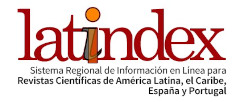Family farming historical and organizational aspects of Nova Alta Paulista region
Keywords:
Family farming, Rural development, Cooperation, Acerola fruitAbstract
Nova Alta Paulista region, with strong aptitude for agribusiness, is one of the poorest in the state of São Paulo. However, the development of agribusiness productive chains in the region is very heterogeneous. The study aimed at analyzing how the historical background and organizational arrangements in family farming have contributed to regional development by promoting improvements in social welfare at Nova Alta Paulista region. To this end, we analyzed the case of the Associação Agrícola de Junqueirópolis - AAJ, an organization that has been successful in the search for alternative of agricultural production. Integrated to local and global market, this organization has ensured the maintenance of many farmers and generated positive externalities for the entire region. Thus, this case shows the organizational arrangement based on cooperation can be an alternative for family farmers achieve higher levels of welfare and development.Downloads
How to Cite
Pinto, L. de B., Lourenzani, A. E. B. S., Lourenzani, W. L., & Mochiuti, J. C. (2012). Family farming historical and organizational aspects of Nova Alta Paulista region. Revista Brasileira De Gestão E Desenvolvimento Regional, 8(2). Retrieved from https://www.rbgdr.com.br/revista/index.php/rbgdr/article/view/670
Issue
Section
Artigos
License
Authors who have their papers accepted and published in the Brazilian Journal of Regional Management and Development must agree to the copyright policy CC BY https://creativecommons.org/licenses/by/4.0/.
If the article is accepted for publication, the copyright is automatically assigned to the Brazilian Journal of Regional Management and Development.
















